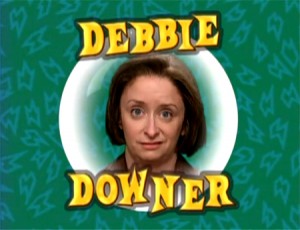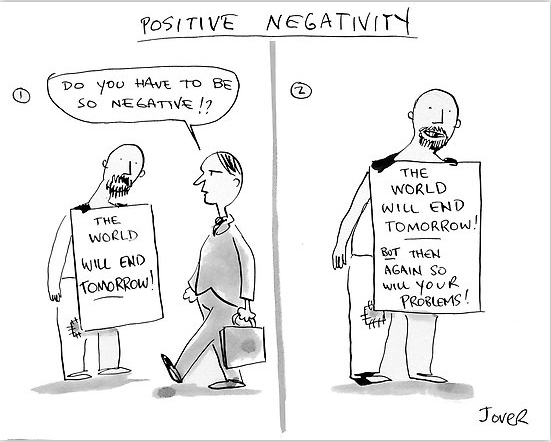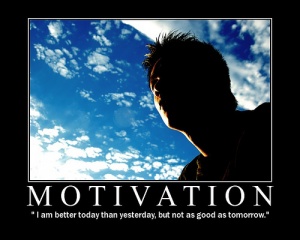My coach jokingly referred to me as being on the disabled list since I’ve been injured for so long, and I’m starting to think that is really the best way to describe how I am feeling.
Although most of us likely associate the word disability with someone who has a mental condition or physical handicap, the Oxford dictionary actually defines disabled as: “having a physical or mental condition that limits their movements, senses, or activities.” Although most injuries (taken to be “physical conditions”) experienced by high level athletes still leave us able to walk, talk and carry on our activities of daily living (barring catastrophic injuries), the typical movements and activities of a high level athlete, like hours of high intensity physical training, are often lost or limited. In this sense, I would argue that every injured athlete is at least temporarily disabled when you consider their limited physical ability resulting from the injury, relative to their typical level of physical functioning.
To further develop my argument, I am going to put my ongoing PhD in Rehabilitation Sciences and the recent course I took in rehab theory to work in this post. The World Health Organization’s ICF model describes disability as “the outcome or result of a complex relationship between an individual’s health condition and the external factors that represent the circumstances in which the individual lives” (ref: Disability and Rehabilitation, 2006; 28(17): 1087-95).

“[The ICF model] acknowledges that every human being can experience a decrement in health and thereby experience some degree of disability” (ref). Adapting this model to an athlete nicely explains how an injury can be much more than a temporary physical impairment, but actually a disability. The model shows how a health condition, such as a bodily injury, in the context of personal and environmental factors (which for a high-level athlete are both very closely tied to sport) interact with one another and with impairments in body function, limitations in activities and restrictions in participation (meaning participation in society, which for an athlete’s life is still very much sport-related) to contribute to disability.

For me, my neck injury sustained this January has affected much more than my physical ability to train. My friends, family and acquaintances are always asking me these days “how are you doing?” as it is common sense that my injury would have an influence on my life. I’ve always admired those people who, even when something really crappy is happening in their life, can smile and answer that question really positively. I don’t want to be a Debbie downer, but those who know me well will agree that I say it like it is, excuse my bluntness, but it is honest and genuine.
So how am I doing? Well, for the past eight months I have done everything I can think of to get better: I took time off training and computer use when the injury was acute and when I have flare-ups, I consulted my treating professionals about every step of my progression back into activity, I got and continue to get chiropractor, massage therapy, physiotherapy treatments every week and most recently osteopathy treatments, I am doing Pilates for rehab, tons of rehab exercises, seeing my sports medicine doctor regularly, taking muscle relaxants and pain killers. I’ve spent $7,000 of my own money for treatment so far. Despite all of this, I still have constant chronic pain. I haven’t ran for 5 out of the last 8 months and am starting to progress back to it again, but my neck pain still doesn’t allow me to cycle or swim. I’ve also not trained with my team and my friends for at least 5 of the last 8 months. I’ve put on 15 lbs and a lot of my clothes don’t fit. I had a bad review for my first year of my PhD. I feel like I am failing the two activities that I’ve committed my life to: triathlon and my PhD. I also get a constant feeling of failure from getting all this treatment and not getting better, and quitting workouts early or skipping them altogether constantly. These are all impairments, limitations and restrictions imposed by the physical injury, in the context of the external personal and environmental factors of my life and affect the experience of my injury. In this context, the impact of this physical injury, similar to many injuries sustained by athletes is better explained as a disability.
Phew! That was a lot of negativity used to illustrate my point. But recognizing how my condition influences my life functioning is actually a good thing, because it helps me to understand how to “treat” the disability and aid in my overall rehabilitation. I know these feelings and experiences have an influence on my disability experience, and writing how I feel and sharing it with others can be a positive experience. For one, I think that too often people are expected to be positive all the time and to hide any negative (and real) feelings. I think it’s okay to admit that things aren’t peachy-keen.
Psychology experts agree. My doctor referred me to a counselor at UBC who has written a book on the psychology of triathlon. She talked to me about the popular concept of mindfulness, which involves bringing your attention to your present experience and your feelings, acknowledging them and then accepting them. So yes I admit it to myself and to others, I feel like I’m a failure right now, and yes I’m feeling sorry for myself. That is how I feel, but I’m not attached to those feelings. This is my situation now, but it won’t be forever, and in the meantime I am being pro-active in doing everything I can to change my situation. She also told me I need to live in the present, not to think too far into the future and torture myself with questions like “when will I be able to race again?” Nobody can answer that for me, as there is so much uncertainty with a soft tissue injury. I think that is good advice for dealing with any uncertainty, because you can’t control the future, so why stress over it?

The ICF model shows that your activities interact with the health condition. So, another thing that the counselor and I talked about was that I should try to find other activities to replace triathlon since that activity is currently limited by my injury. Would I like to cook? Knit? Play an instrument? Nope, nope and nope. I didn’t want to do any of the things she listed and I couldn’t think of anything myself that I would want to do (neck permitting). I just want to do triathlon. She laughed and said that my one-dimensional interest is very common with high-level athletes. I’ve always said that I believe in the concept of choosing one or two things, and doing that really well, rather than dabbling in lots of different activities. I don’t want to be mediocre; I want to be really successful at what I do. This injury has really shown that even subconsciously I have committed to this concept, because I now have the opportunity to pursue other interests, but am finding out that nothing else “lights my fire” like my chosen pursuits. But not finding other activities to make me happy is not helpful to reducing the disability. Perhaps, there could be something positive that has come out of this attempt at addressing this component of the model though. Rather than going through that struggle a few years from now that many athletes experience of not knowing whether your sport is something you want to continue to pursue, I can reflect on this experience: yep, swim, bike, run, research, that’s what I want to do.

Getting back to the ICF, I do believe in the interrelatedness of the components. I believe that a positive outlook (which can stem from both personal and environmental factors according to the model) can influence the health condition positively and improve recovery. As soon as I got in the car accident, and often throughout my recovery I think about Janelle Morrison, a fellow pro triathlete who I raced against once last year, and got into a car accident much worse than mine a few months before me. Janelle was very injured and had multiple broken bones and surgeries. I’ve been reading her blog since the accident and she is so incredibly positive about the whole experience and is already back to training a fair amount. I walked away from my accident without any scrapes, broken bones or even needing to go the hospital, and she has surpassed me in her recovery. It’s really astounding how positive she can be about such a terrible situation and I am convinced that it is helping with her quick recovery. Soon after the accident, she came up with a list of reasons why she thought the accident was meant to happen, and in her recovery, she treats every little progression toward getting back to triathlon like an incredible victory. I try to model myself after people like that as I struggle to deal with my injury.
I long for the day that I can go back to training twice a day and finish every workout. Yes I even miss going to the pool at 5 am. I know I’m not not the first athlete to have an extended injury and that there are many inspiring stories of recovery from injuries much worse than mine. Thinking about athletes like Janelle and Jordan Rapp and talking to friends who have had long-lasting chronic injuries to find out how they dealt with it is really helpful. So please feel free to comment on this post with your stories of recovery and coping strategies. But for the academic in me, adapting the ICF model to explain mine and other athletes’ experience with an injury is also a helpful coping strategy. It allows me to understand why it seems like my whole world has crumbled just because I cannot train. I know that once I can return to my normal activities again, and my limitations and restrictions are removed, balance will be restored, and my athlete-adaptated definition of an ICF-defined disability will melt away. But until then, I have to adapt to my current experience and I will take a lesson from Janelle and marvel at little victories: I lost 2lbs this week, and ran 14 km yesterday with the smallest amount of pain I have felt in a long, long time. WOOHOO!


I believe that injuries stay with you, whether physically or mentally much longer periods than the human attention span/patience is capable of dealing with. We rest the injury, we ice it, we heat it, we rub anything on it to make it better, we try special foods and supplements and go to the best doctors, physiotherapists, chiropractors, reflexologists, heck we’d go to psychics if we thought it’d help…and it might…but none of these things may heal you, or put you back the way you were. You’re like a car whose dent has been hammered back out, but now you make a slight rattling sound that you can’t fix, or find. You have to keep driving the same car, so you learn to deal with the rattle, and carry on. Swimming might hurt you from now on, but you swim through, knowing where you need to back off and where you can push you limits. You are no longer new car Amy, now you have some dents, but your engine is still revving, and your tires will take you anywhere you want to go. Patience, pain, and perseverance is the answer to your recovery. It is a shitty prognosis, but as long as you keep horizon in sight, you’ll get there eventually.
Thanks Ally. I like your analogy and I think you are right in that we will always carry past injuries with us. The hope is that you take something from that injury -whether that is strength, renewed passion for your sport or learning about a physical deficiency that you can work on to prevent future injuries (in the case of overuse injuries).
Amy, I enjoyed reading this. I still wish I had some insight into how to deal with injuries. I do often think back on the last few months of my recovery. It sucked and sometimes I wished I had handled things differently — jealousy of others’ quicker recovery or injury timing, fatalist about it being my last season to be that strong, anger that I couldn’t be braver about it — but I think when you get better, there’s some value in having figured out how you would have handled it differently, and a newfound satisfaction to be training and racing again. Until then, you just gotta get by a day at a time, just like you know all about.
I have become SO empathetic since being injured this year. I had a lot of sympathy for you when I heard about your crash. I teared up when Chris Horner crashed out in the tour too this summer. In all three of our cases the thing that makes it so much worse is that we potentially may not have another opportunity to be as fit and race so well in the future (I don’t think I’ll be able to travel as much for races in the coming years of my PhD). I was also really jealous how quickly you’ve returned to cycling. But at the same time I am encouraged by other people’s recovery. Look how fast you are getting already! Chris Horner started training for the 2012 tour already. Since my injury is lasting much longer than I expected I think that I can reflect on how to handle it better now. Thats what this post is all about.